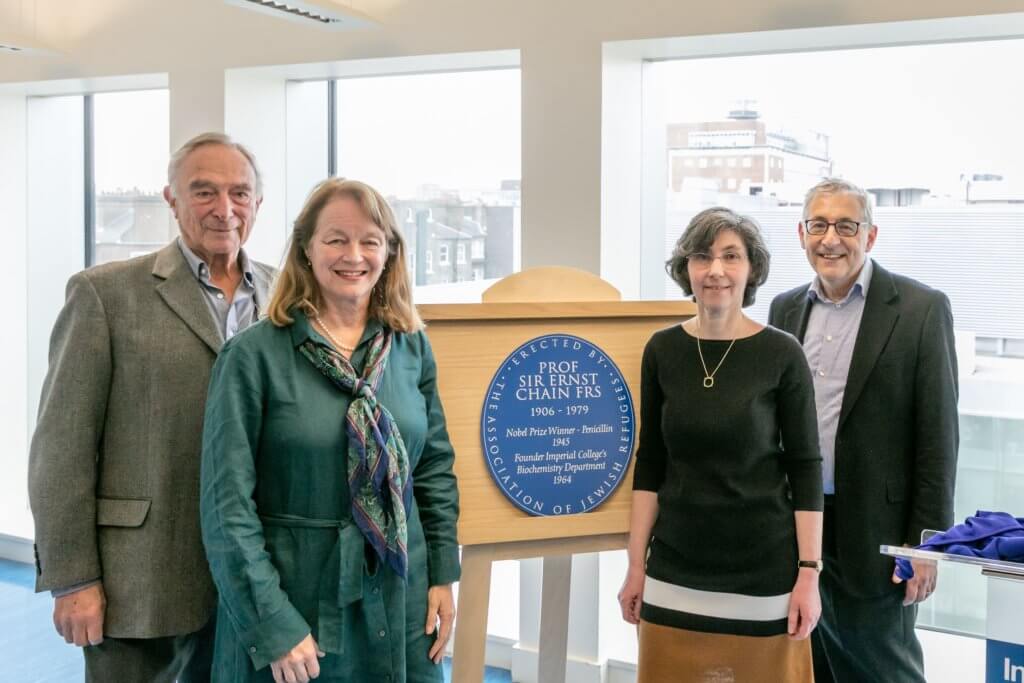Blue plaque to Sir Ernst Chain unveiled

AJR unveiled a commemorative plaque in honour of Nobel Prize winning Jewish émigré Professor Sir Ernst Chain on 9 April at Imperial College, London.
Born in Berlin in 1906, Ernst Chain received his degree in chemistry from Friedrich Wilhelm University in 1930 but fled Germany immediately after the Nazis came to power, arriving in England in April 1933.
Together with Alexander Fleming and Howard Florey, Ernst Chain was awarded the Nobel Prize for Physiology or Medicine in 1945 in recognition of the discovery of penicillin and its curative effect on various infectious diseases.
Ernst Chain arrived at Imperial in 1961 and is remembered for his foresight around the importance of biochemistry – a vision that helped the College evolve its originally modest plans for the subject into the founding of a new Department and construction of a seven-story biochemistry building.
Under Chain’s direction, the Department became a leading international centre for physiological biochemistry with a focus on fermentation technologies that were essentially industrial biotechnology years ahead of its time. Professor Sir Chain was appointed a fellow by the Royal Society in March 1948 and was knighted in July 1969.
Through its plaque scheme the AJR is honouring prominent Jewish émigrés from Nazism who made a significant contribution to their adopted homeland. AJR Trustee, Frank Harding, who devised the plaque scheme, said: “It is with great pleasure that we are recognising and honouring Prof Sir Ernst Chain, the pioneering and eminent scientist whose endeavours and research have profoundly impacted and benefitted people throughout the world.
We believe that these commemorative plaques will help form a tangible link between illustrious refugees who have made an everlasting contribution and the local community as well as fascinating residents and visitors. As well as being instructive and informative, they bring the past into the present, and they perpetuate the memory of the person being honoured.”
